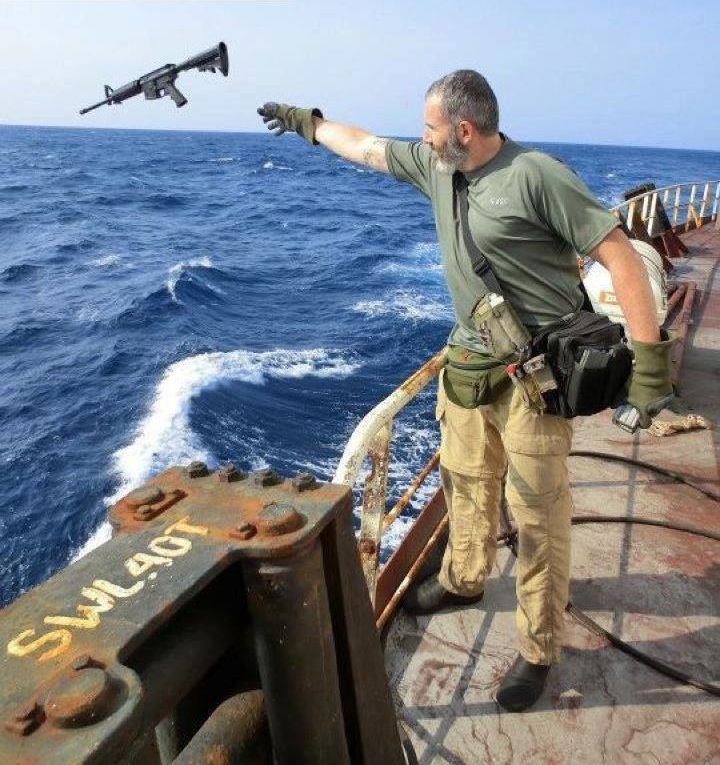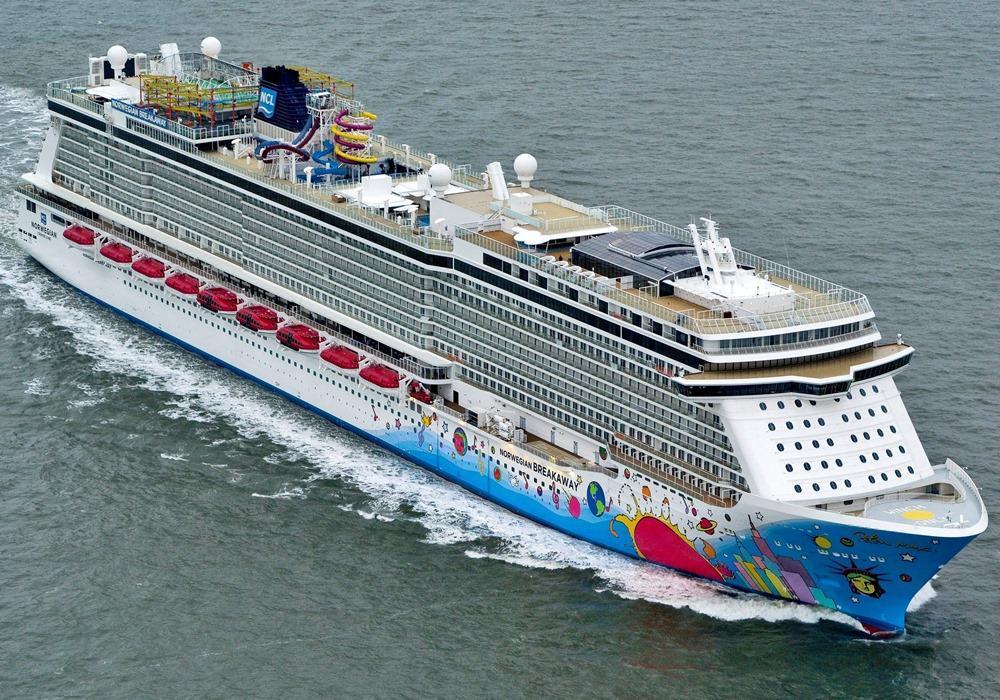Table Of Content

Advancements in surveillance technology, such as the use of artificial intelligence and facial recognition, will enhance the cruise industry’s ability to detect and respond to potential security threats. The integration of biometrics in various aspects of the cruise experience, from embarkation to access control, will streamline processes and improve passenger convenience while ensuring security. Cruise ship operators are required to comply with these regulations and undergo regular inspections to ensure adherence. Compliance and inspection procedures involve assessing the ship’s security measures, emergency response plans, and training programs. Non-compliance with these regulations can lead to penalties, fines, or suspension of operations.
1 Access Control and Surveillance
While cruise ships have medical facilities and trained medical personnel on board, it is important to be prepared for medical emergencies. Ships have protocols in place for responding to and managing medical emergencies, including coordination with onshore medical facilities for more serious cases. These measures aim to ensure prompt and effective medical assistance for passengers and crew members. While safety is paramount, security onboard cruise ships is equally crucial. Cruise lines implement a series of measures to ensure a secure environment for their passengers and crew. Cruise ships must operate in compliance with stringent requirements of international law.
What Security Measures Are in Place at Sea?

Cruise ship security has evolved with advancements in technology, enabling faster and more accurate detection of potential threats. CCTV surveillance technology, for example, has become an indispensable tool in monitoring ship activity. With strategically positioned cameras, security personnel can identify and respond to potential security breaches before they escalate. First, if the incident occurs on the ship contact the ship security and (if needed) ask for medical attention.
Cruise Ship Security Measures: An In-Depth Look
To maintain safety on board, vessels undergo regular inspections by maritime authorities to check if they meet the required safety standards. Cruise lines also conduct regular safety drills to ensure that their crew members are well-equipped to handle emergencies. Passenger safety briefings are an essential part of cruise ship security protocols. These briefings are conducted at the beginning of each voyage and provide passengers with important information regarding safety procedures and emergency protocols. The purpose of these briefings is to familiarize passengers with emergency exits, life jacket locations, and evacuation procedures.
Are there specific safety rules that passengers need to follow while onboard?
AIDA Cancels Repositioning Cruises to Avoid Red Sea Security Concerns - The Maritime Executive
AIDA Cancels Repositioning Cruises to Avoid Red Sea Security Concerns.
Posted: Thu, 25 Jan 2024 08:00:00 GMT [source]
But, in the end, all of these rules and regulations make a cruise ship a very secure place to work and live. Although there are security measures that you are required to comply with as a crewmember, there are also some things to do that affect your own personal security. From keeping yourself and your belongings safe to knowing what you cannot bring onboard or ashore, here are some tips. It’s a legal requirement for every ship to have a ship security officer who’s responsible for the overall safety of the ship. Although cruise lines do have jails onboard, it isn’t the intention of the cruise line to keep guests here for any great period of time. While there are several advantages to working cruise ship security, there are also several drawbacks that you must consider.

Cruise lines go to great lengths to support the health and wellness of all onboard, from rigorous cleaning practices to comprehensive medical facilities. Royal Caribbean International is committed to preventing illegal activity and treats all allegations seriously. We report all allegations of crimes to law enforcement, regardless of the validity of the claim. The Cruise Vessel Security and Safety act of 2010 (CVSSA) requires that statistics for cruise ship crime allegations be posted on the Internet by the US Government for public viewing. This public reporting requirement is unique to the cruise industry, as there is no similar requirement for any other commercial industry, including hotels and airlines. After the coronavirus shut down the industry, cruise lines further strengthened their protocols to include safeguards against airborne pathogens.
Security Measures for Specific Threats
Cruise ships are equipped with advanced navigational equipment to avoid storms, and engine room contingencies allow onboard operations to continue, even if the ship's speed or propulsion is affected. Cruise lines have multiple safety measures in place on every cruise and the crew are trained in all aspects of crime and reporting. Here's what you need to know when you're using internet aboard cruise ships -- or anywhere on vacation. Cruise Hive was established back in 2008 and among the earliest blogs in the industry.
Future Trends in Cruise Ship Security
Due to the large number of guests on a cruise ship, cruise ships do have to have jails onboard. They are needed for a variety of reasons and members of the ship’s security Team manage the jail. We operate worldwide and therefore comply with local and international regulations."
The Importance of Cruise Ship Security
Royal Caribbean makes a key change for passenger safety - TheStreet
Royal Caribbean makes a key change for passenger safety.
Posted: Wed, 13 Mar 2024 07:00:00 GMT [source]
Finally, you should have basic knowledge of security protocols and procedures. If you’ve never worked on a cruise ship before, you may need to attend a maritime training program, undergo firearms and safety training, and obtain any other certifications your desired cruise line may require. What’s more, to succeed as part of cruise ship security, you need to be able to collaborate with the other security personnel, as you’ll need to be coordinated and work as a team to cover the most ground on the cruise ship. At a higher level, the security team is trained to respond to emergencies and security incidents. This ranges from controlling unruly guests to preventing and responding to piracy or terrorism threats. They’ve got it covered, and their array of contingency plans to protect passengers are more effective when not widely publicized.
In this comprehensive guide, we delve into the pivotal aspects of cruise ship safety and security, demystifying the measures taken by the industry to ensure a safe and enjoyable journey for all passengers. But passenger safety and security are a serious matter for cruise lines. Controlling the flow of luggage contraband is a tiny fraction of how cruise ships deal with crime onboard. In addition, cruise ships conduct regular emergency protocol drills to prepare passengers and crew members for potential crises. These drills ensure that everyone is familiar with safety procedures and evacuation routes in case of emergencies such as fires or incidents requiring evacuation. The effectiveness of these drills greatly enhances the ship’s ability to respond swiftly and efficiently to any security or safety threats.
Double-check that your balcony door is locked during the day, and always check the peephole if someone knocks on your door. All crew members undergo extensive safety training to ensure they are capable of handling various emergencies. In addition, passengers are required to attend or watch safety drills and familiarize themselves with the ship’s emergency procedures.
To get hired as a cruise ship Security Officer, the person must possess skills and experience such as police training, crowd management experience and knowledge of the ISPS Code. The International Ship and Port Facility Security Code (ISPS Code) is a set of rules and regulations intended to enhance the security of the ship and port facilities. It was developed post 911 and is implemented as a supplement to one of the chapters in Safety of Life at Sea (SOLAS). In the majority of situations, the security team are usually able to diffuse a situation by returning a passenger to their cabin instead of the Brig. The security team onboard would work with the captain to decide on the best outcome. If a serious crime like this did happen, the guest would be placed into the Brig until port where the local authorities would take over.
From less intrusive screening to no body scanners to being able to pack liquids, cruise security will remind you of how flying used to be. It's not possible for someone to slip on a wet deck or trip over a door frame and simply fall off a cruise ship. Take advantage of your travel insurance's cancel for any reason coverage (if that's included in your particular policy) to get your money back and avoid spreading sickness to others. If the guest had made threats against other guests or threats to end their own life, they may be placed in the Brig. GAO's mission is to provide Congress with fact-based, nonpartisan information that can help improve federal government performance and ensure accountability for the benefit of the American people.
The best way to avoid both catching and transmitting germs is to wash your hands, particularly before eating and after using the restroom or coming in contact with high-touch surfaces like handrails and elevator buttons. However, ships are held to high cleanliness standards that are dictated and monitored by the U.S. Centers for Disease Control and Prevention via the Vessel Sanitation Program, which was implemented in the 1970s. If the ship is in port when a crime occurs, local authorities have clear jurisdiction. Each country is also entitled to jurisdiction in waters within 12 nautical miles of their shores, according to the United Nations Convention on the Law of the Sea. The final decision of whether a passenger goes into the Brig is with the Captain of the cruise ship.
The number of medical staff members varies depending on the size of the vessel and the number of passengers onboard. Despite concerns about pirate attacks, these incidents are very rare on cruises. Ports and waterways deemed high risk are usually avoided, and cruise ships can increase speed and change course if necessary. Cruise lines are required to adhere to local and international policies, including regular inspection of vessels and the implementation of comprehensive sanitation procedures.

No comments:
Post a Comment